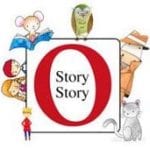 Social media has redefined “participatory” in all kinds of ways. Social technologies and easy-to-use tools have changed fundamental assumptions about how we interact with everything, not just each other. It’s time we get used to the idea that kids these days think media is for interacting and not watching. Parents can take comfort in knowing that interactive technology, when developed well, allows a child to actively engage in their own learning. One such app, Wendy’s Giant List of Things to Do for the iPad, has 10 qualities that would make Piaget proud.
Social media has redefined “participatory” in all kinds of ways. Social technologies and easy-to-use tools have changed fundamental assumptions about how we interact with everything, not just each other. It’s time we get used to the idea that kids these days think media is for interacting and not watching. Parents can take comfort in knowing that interactive technology, when developed well, allows a child to actively engage in their own learning. One such app, Wendy’s Giant List of Things to Do for the iPad, has 10 qualities that would make Piaget proud.
The current generation of toddlers is growing up with the expectation that media allows active play and, more excitingly, that information is something they can interact with, explore, manipulate, and share. This attitude will be a big plus when they are old enough for science class. Easy-to-use technologies like the iPad with its touch screen are encouraging development of interactive apps and books that are fun and educational (and usable) for even very young ages.
One example is the new ‘O Story Story’ series of interactive apps for young children by Endemol USA. The first offering is Wendy’s Giant List of Things to Do. This book delivers age appropriate interactivity and is successful in the following ways that will matter to parents. (Kids will just care if it’s fun or not – which it is).
1. The story has a simple premise that most preschoolers will relate to: It’s almost nap time and Wendy has several things she wants to do first. (For those of you with kids in the terrible twos, this book does not reinforce resisting nap time nor does it have any undercurrent of parent-child conflict over nap time. It’s just about the things Wendy does before she takes a nap.)
2. The hand drawn watercolor illustrations are easy for a child to interpret.
3. There are clear and intuitively designed buttons that so that the child can experiment with choice and elect to read the book with or without the narration. I suspect most kids will choose the narration, because more fun stuff happens that way.
4. The interactivity is straightforward and preschool-appropriate. The touch-screen navigation is very obvious (even for parents). If you press on a heart icon, something good happens.
5. Young children learn through imitation and memory. In Wendy’s List, some parts of the illustration with interactivity, like the cat, always make the same sound (“mew”), reinforcing basic schema, in the same way we play the “what does the dog say?” game with young children.
6. Other parts of the illustrations are used to teach and reinforce object recognition and naming, such as “cup” or “plate.”
7. An important part of cognitive development for children is the conceptualization of cause and effect and goal-directed behavior. Developing an understanding that the child’s own actions have consequences is a necessary building block to the growth of self-efficacy and resilience. In Wendy’s List, children will enjoy a very clear sense of their own agency, making Wendy jump, water come out of the house or the dog bark.
8. In the tradition of good educational scaffolding, the words of the text change color as the narrator reads, reinforcing the symbolic relationship between words, sounds, and meaning.
9. As an added bonus, the app also includes a separate matching game of objects from the story, exercising not just memory but their developing sense of object permanence.
10. From the DIY angle, there are lots of opportunities for the adult reader to embellish and add on to the story, ask questions, and enhance the level of engagement and logical thought.
But fancy theories of child development aside, as a parent who read Hop on Pop, Go Dog Go many, many, MANY times, this book has all the qualities that will make it one that gets requested when a little one crawls up in your lap for reading time. But the features of the app are accessible and well-designed, so don’t be surprised if they decide to read it to themselves when you’re busy. It’s not a bad Christmas gift, either.
Cross-posted on Psychology Today.


 Dr. Pamela Rutledge is available to reporters for comments on the psychological and social impact of media and technology on individuals, society, organizations and brands.
Dr. Pamela Rutledge is available to reporters for comments on the psychological and social impact of media and technology on individuals, society, organizations and brands.